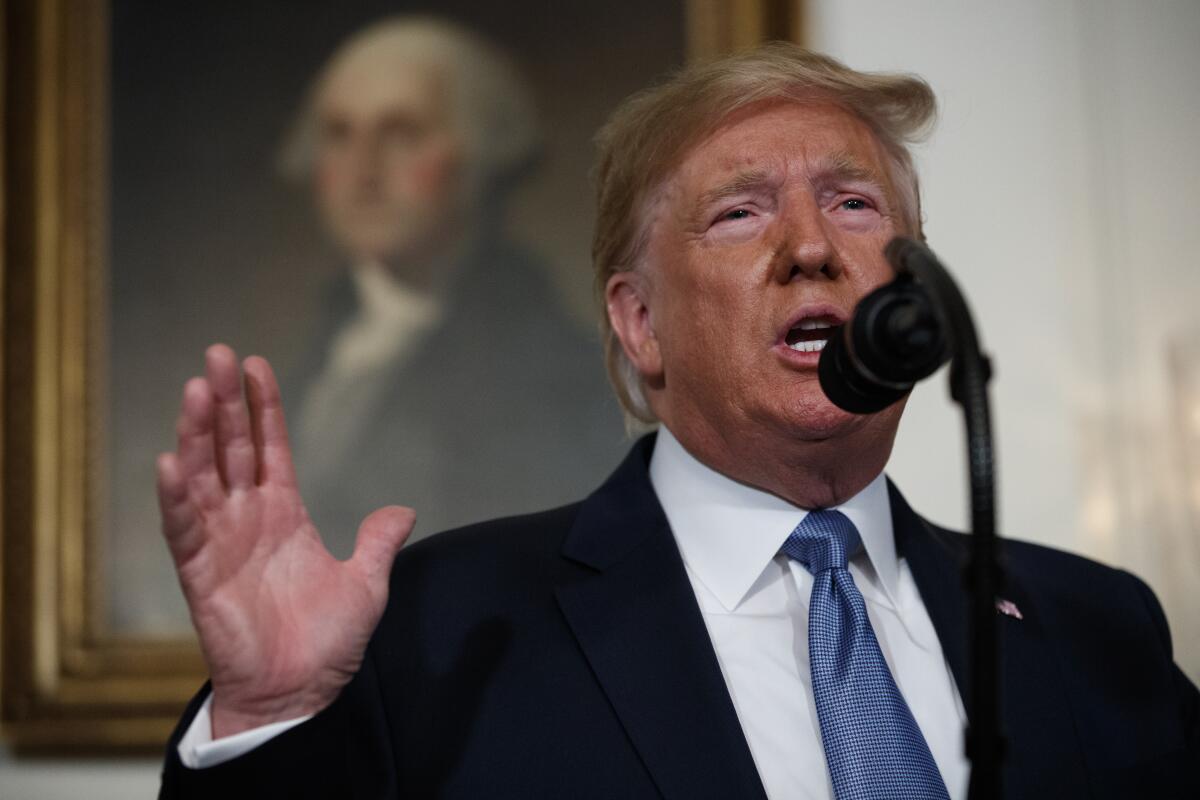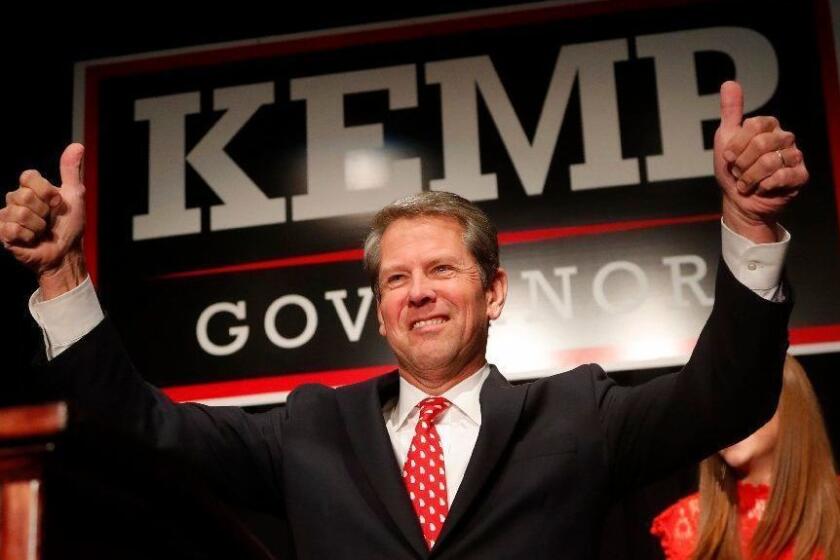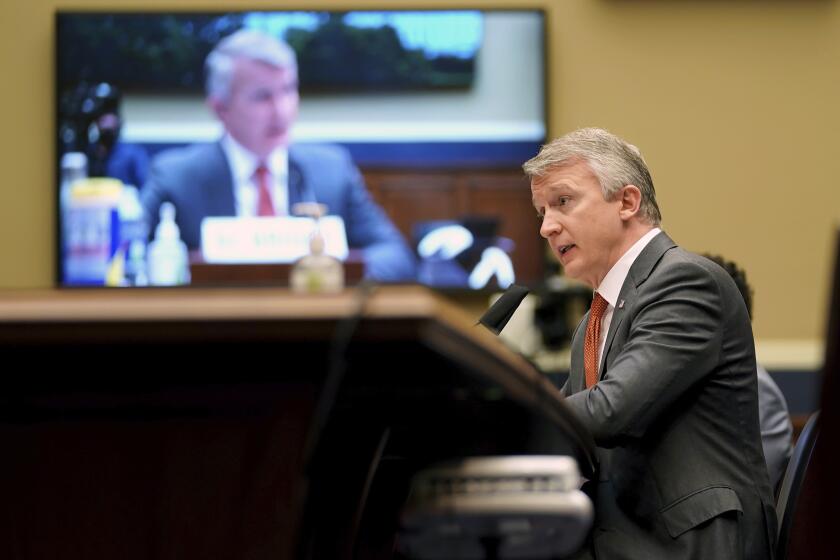Opinion: The Trump-Biden campaign is a throwdown over truth

Watching the fall presidential election take shape brings to mind the old Chico Marx line from âDuck Soup,â âWho you gonna believe, me or your own eyes?â

As the coronavirus crisis plays out, President Trump has ramped up his lava flow of lies and half-truths, apparently embracing the notion that if you insist on falsehoods long enough they will become truth â at least for people willing to suspend skepticism.
Or should I say, for people willing to embrace selective skepticism. The same group considers most of the work published by the American media to be mendacious, out of the conviction that the media are conspiring with the Democrats to bring down the leader of that particular cult of personality.
(A former colleague, asked at a panel discussion about media conspiring about something or other, replied: âYou canât get six journalists to conspire about where to go for lunch.â)
But back to the Fibmeister. In recent days heâs spouted off about unspecified crimes committed by his predecessor in the invented âObamagateâ; made the preposterous insinuation that MSNBC âMorning Joeâ co-host Joe Scarborough (a former Republican congressman) may have murdered an aide; persistently suggested the coronavirus was incubated in a Chinese lab; accused the World Health Organization of being a âpuppet of China,â and on and on.
And then there are his proxies: sons Donald Jr., who claims he was âjoking aroundâ when he shared a video suggesting presumptive Democratic nominee Joe Biden is a pedophile (such lies have consequences), and Eric, who said the coronavirus pandemic is a Democratic chimera that after election day âwill magically, all of a sudden, go away and disappear and everybody will be able to reopen.â
Thatâs a full-scale assault on truth, and on Trump enemies real and imagined. It doesnât matter to Trump and his enablers that he cynically creates a world out of lies, then forges ahead as though itâs real. Itâs chaos they seek, not reality. So this campaign wonât be about different policy approaches or visions for the country, but different visions of the country, one rooted in observable and provable facts and the other a funhouse mirror.
Georgia officials bungled the data in a way thatâs hard to believe wasnât on purpose.
The Biden campaign has done its own truth shaping as well, including the release of a selectively edited video clip that cast Trump in a harsher light than the moment itself did (the Washington Postâs Fact Checker column dissects it here).
But I donât offer that as a bit of false equivalency. In fact, itâs illustrative of the differences between the two approaches, with some indefensible creative video editing on one hand versus a tsunami of falsehoods on the other â as well as indefensible creative video editing.
Trump won the 2016 election by tapping into some of the darker streams of the American body politic â racial divisiveness, xenophobia, suspicion and distrust.
But he also gave a political home to voters who feel marginalized by their own government, and who fear their way of life is imperiled (whether it is, indeed, imperiled is irrelevant; belief is truth in that scenario).
Whistleblower Rick Bright, who was removed from his post by the White House, testified the Trump administration ignored early coronavirus warnings.
Biden and the Democrats can exploit that by pointing out that Trump has done little to assuage those fears.
Sure, heâs appointed more conservative federal judges, but he has also battered rural economies and portions of the manufacturing sector through his misguided tariffs and, through his late and ineffective response to the pandemic, unnecessarily cost American lives and shattered families and communities.
The hurdle is going to be getting voters to focus on the reality as it exists, not as Trump paints it. No easy task, that.
More to Read
A cure for the common opinion
Get thought-provoking perspectives with our weekly newsletter.
You may occasionally receive promotional content from the Los Angeles Times.













